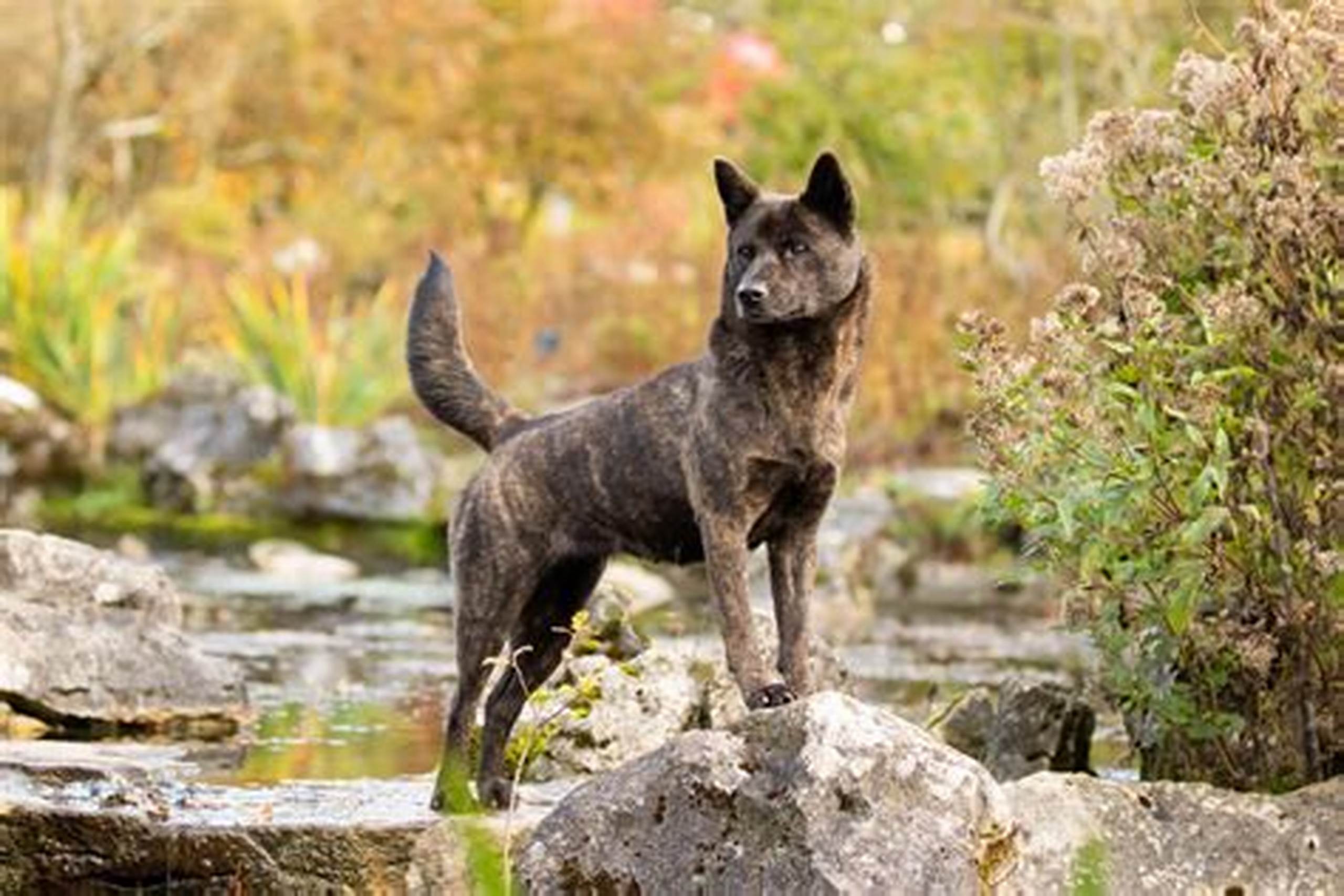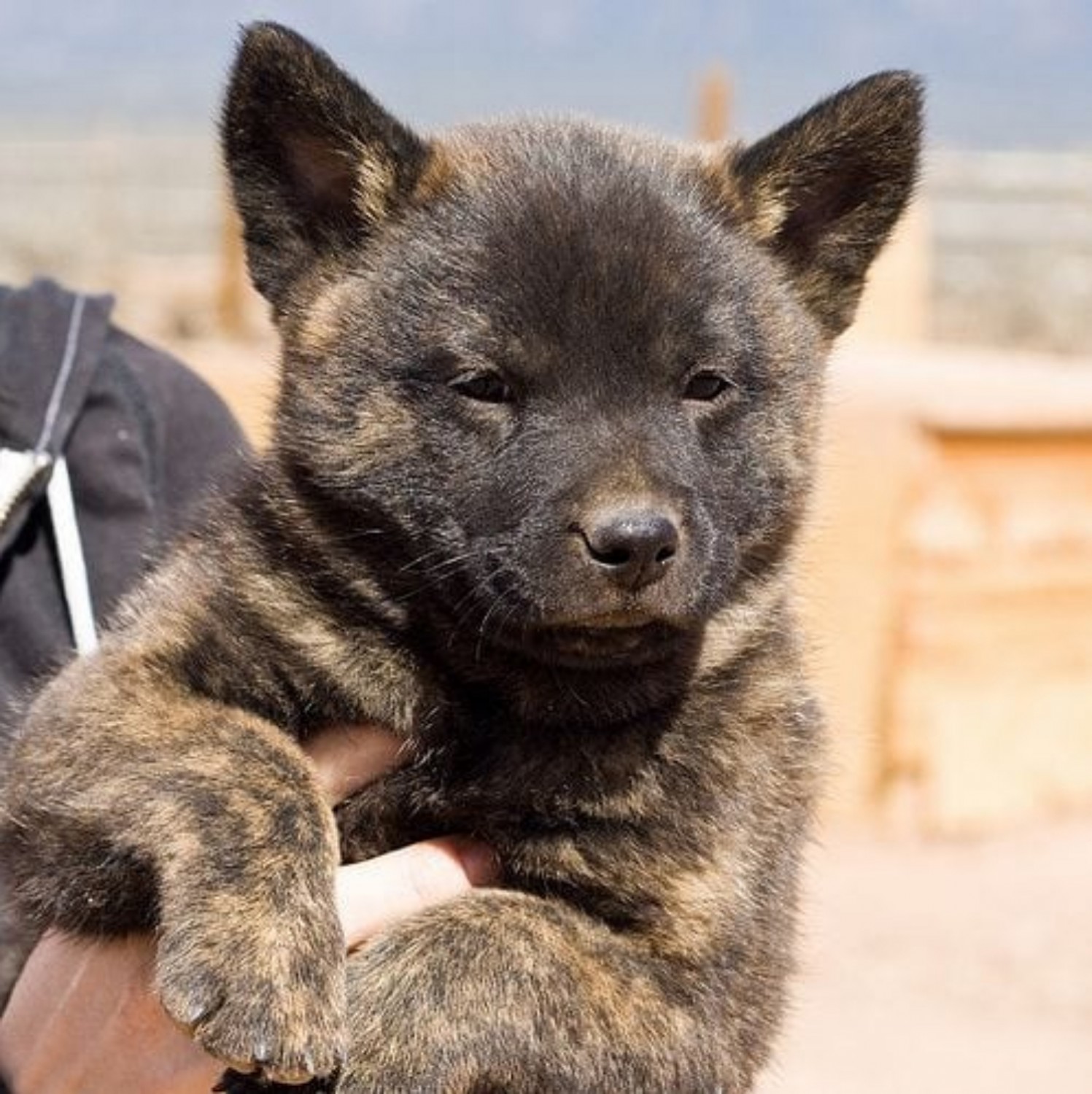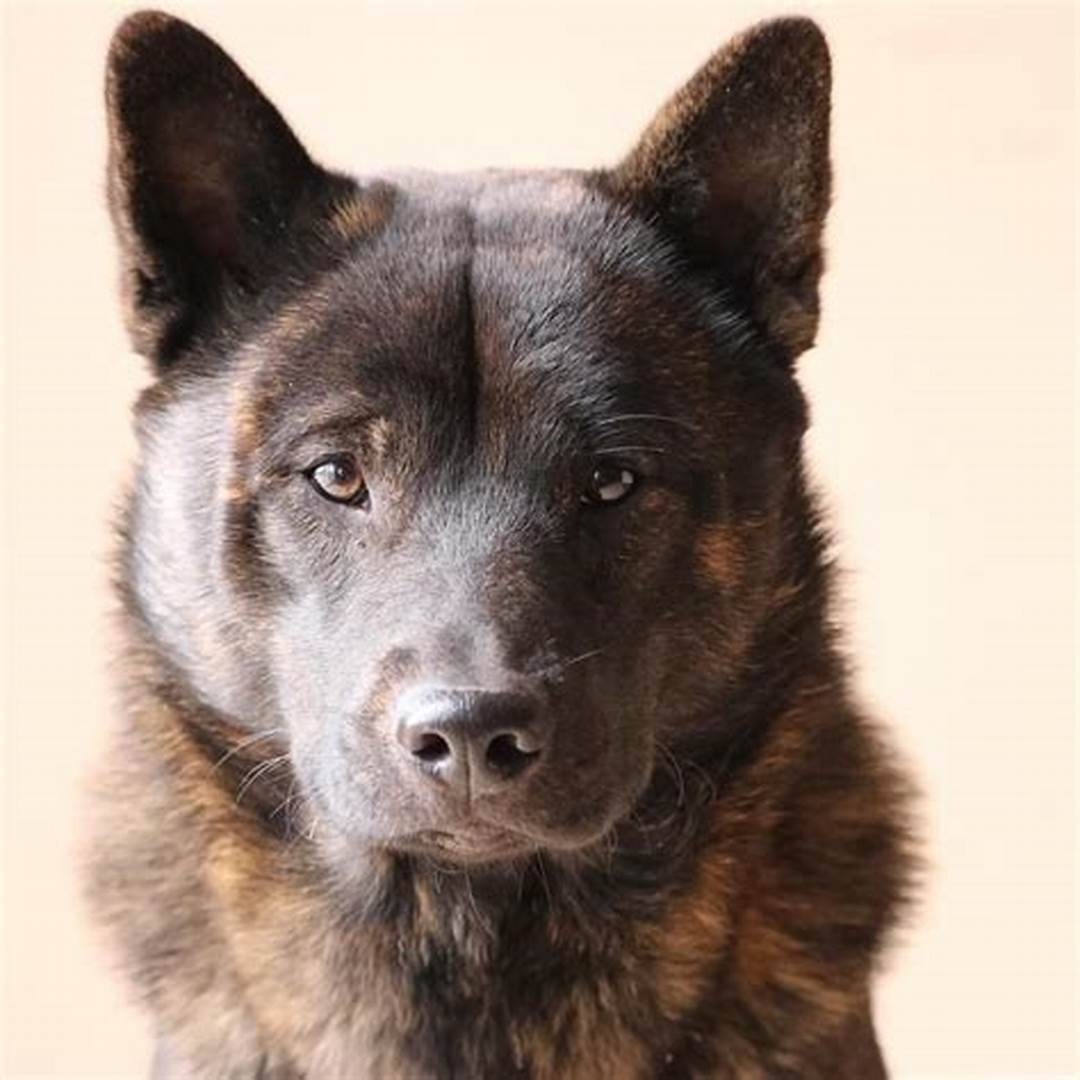
The Kai Ken, also known as the Tora Inu ("Tiger Dog") due to its unique brindle coat, is one of Japan’s six native spitz-type dogs and is among the rarest. Originating from the mountainous Kai region (now Yamanashi Prefecture), the breed developed in isolation, leading to its purity and strong survival instincts.
Historically used for hunting wild boar and deer, the Kai Ken is revered for its loyalty, agility, and natural intelligence. Recognized as a national treasure of Japan in 1934, it remains a symbol of Japanese heritage. Although still uncommon outside Japan, the Kai Ken is gradually earning appreciation in North America and Europe for its unique appearance and balanced temperament.
The Kai Ken remains a rare breed, even in its native country. However, it has a small but passionate following among dog enthusiasts who value its wild look, loyalty, and adaptable nature. The breed is becoming more known in the United States through preservationist breeders and cultural awareness of native Japanese dogs.
Because of their reserved nature and strong bond with their families, Kai Kens appeal to owners seeking a dignified, watchful companion rather than a bubbly, overly social dog.
Kai Kens are medium-sized, athletic dogs with a wolf-like grace and striking brindle coat that sets them apart from other Japanese breeds.
Coat: Medium-length double coat—weather-resistant and straight with a soft undercoat. The coat becomes more distinct with age.
Color:
Brindle (black brindle, red brindle, or brindle) is the hallmark—solid colors are not accepted in breed standards.
Size:
• Height: 17–22 inches (43–56 cm)
• Weight: 25–45 lbs (11–20 kg)
Head & Expression: Balanced, foxlike head with a strong muzzle and dark, intelligent eyes.
Ears: Triangular, erect, and slightly forward-facing.
Tail: Curled or sickle-shaped, carried high over the back.
Body: Compact, well-muscled, and agile—built for climbing and maneuvering in rough terrain.
Bred to work independently in remote forests, the Kai Ken blends self-reliance with devotion to its family. While not overly demonstrative, this breed forms deep attachments with its people.
Reserved but Loyal: Wary of strangers but devoted to family—deeply bonded and watchful.
Quiet Hunter: Naturally quiet and observant—doesn’t bark excessively.
Intelligent and Discerning: Thinks before acting, often evaluating situations independently.
Agile and Athletic: A natural climber and jumper—loves outdoor activity.
Moderately Sociable: Tends to be aloof with new people or animals—benefits from early socialization.

For the right owner, the Kai Ken is an incredibly loyal, clean, and low-maintenance dog with a wild beauty and noble spirit.
Independent but Connected: Balances loyalty with quiet self-sufficiency.
Natural Cleanliness: Odor-free and fastidious—often likened to cats in hygiene habits.
Great for Active Homes: Enjoys hiking, training, and exploring new environments.
Protective Yet Calm: An alert guardian without being overly reactive.
Distinct Appearance: That brindle coat and wolfish grace make it stand out among spitz breeds.
Though not demanding, the Kai Ken does best with experienced, patient owners who understand its need for routine, respect, and gradual socialization.
Training:
• Intelligent but independent—responds to positive reinforcement and calm leadership.
• Early socialization and confidence building are important.
Exercise:
• Needs daily walks and access to secure outdoor play.
• Enjoys hiking, agility, and brain games—boredom can lead to aloof behavior.
Grooming:
• Seasonal shedding—brush more often during heavy molts.
• Generally only needs weekly brushing and the occasional bath.
Nutrition:
• Balanced diet for a medium, active dog—watch portions to avoid weight gain.
• High-quality food supports coat health and vitality.
Companionship:
• Best in homes where the dog won’t be isolated long hours.
• May not thrive in busy or chaotic environments.

The Kai Ken is a hardy breed with few inherited health problems due to its natural development. It typically lives 12–15 years. Known concerns include:
• Mild hip dysplasia
• Sensitivity to certain foods or environments (minor allergies)
• Rare autoimmune or endocrine issues (infrequent)
Ethical breeders work to preserve the health and temperament of this rare breed.
The Kai Ken is more agile and reserved than the Shiba Inu, and more naturally athletic than the Akita. Compared to the Kishu Ken, the Kai is more colorful and slightly more cautious. It shares the clean, independent spirit of other native Japanese dogs, but its brindle coat and climbing ability make it uniquely suited for adventure-loving owners.
If you're seeking a thoughtful, loyal, and visually stunning dog with a reserved demeanor, the Kai Ken may be perfect. Best for calm households and confident owners who value quiet companionship.
Not ideal for owners who want an extroverted or always-social dog.
United Pet Club is here to help you connect with ethical Kai Ken breeders, understand this unique breed’s personality, and support your journey with training tips and care resources. The Kai Ken may be rare—but in the right hands, it’s a loyal and dignified companion unlike any other.